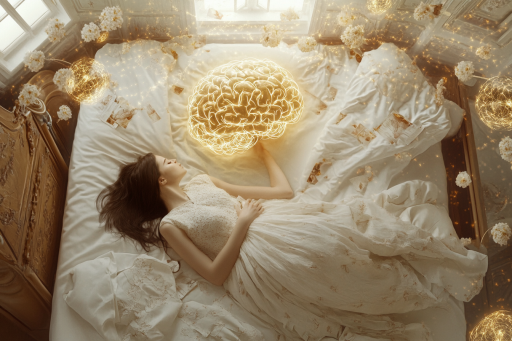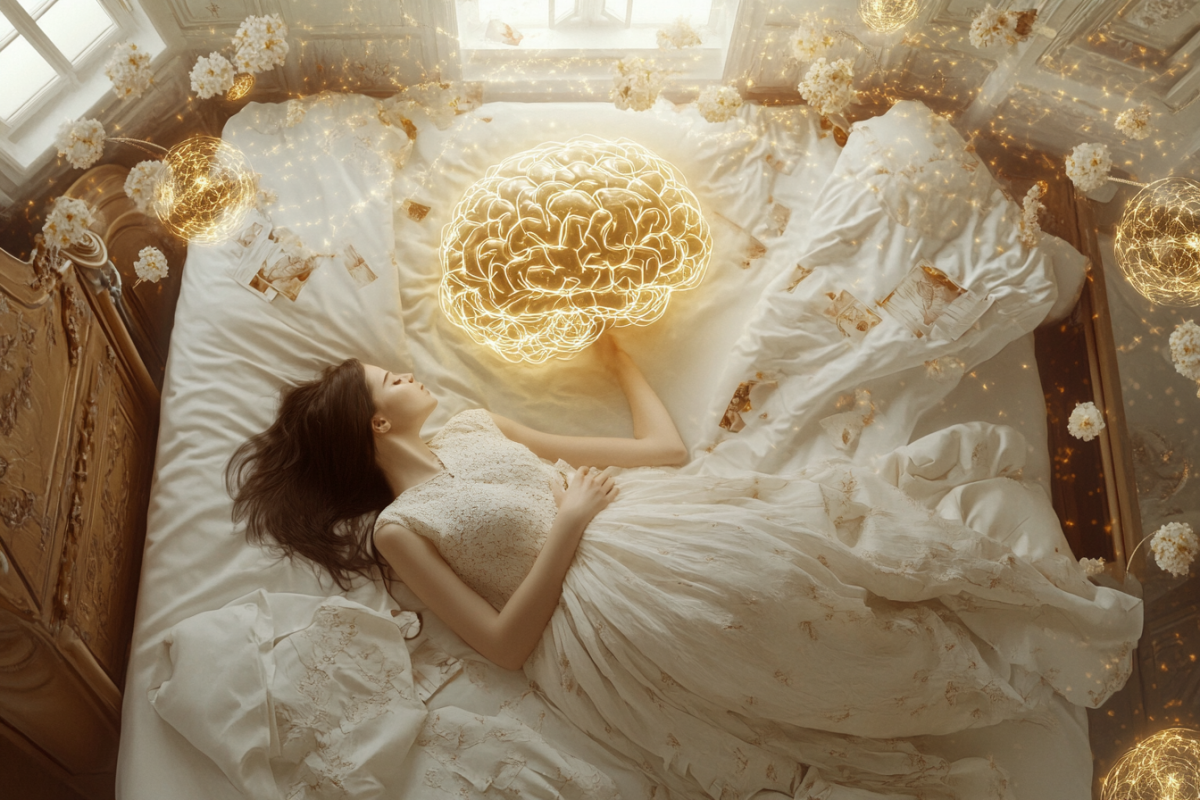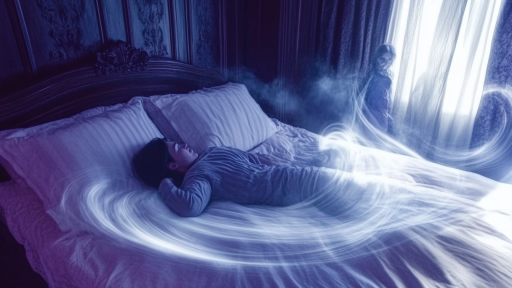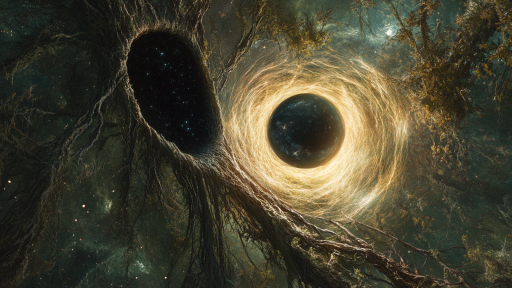
Your brain doesn’t shut down when you sleep—in fact, it becomes even more active, creating a strange, hidden world within your mind. While you dream, your brain unlocks bizarre abilities, reconstructs memories, and even solves problems without you realizing it. Some of these processes are harmless, while others suggest that your subconscious is more powerful than you think. As scientists continue to uncover the mysteries of dreaming, they are beginning to realize that the brain is working in ways we never imagined.
Your Brain Paralyzes Your Body While You Sleep

To prevent you from acting out your dreams, your brain temporarily paralyzes most of your muscles during REM sleep. This is a protective mechanism, keeping you from physically reacting to dream scenarios. However, when this process malfunctions, it can lead to sleep paralysis—where you wake up but can’t move, often experiencing terrifying hallucinations. While this paralysis usually goes unnoticed, it’s a reminder that your brain has more control over your body than you realize.
Dreams Can Improve Problem-Solving Skills

Your brain continues working on problems while you sleep, sometimes leading to breakthrough moments. Many famous discoveries, from scientific theories to artistic masterpieces, have been credited to dream-induced inspiration. Studies suggest that the brain reorganizes and tests different solutions while dreaming, making it easier to think creatively when awake. If you’ve ever woken up with an answer to something that seemed impossible the night before, your dreams may have solved it for you.
You Dream in Real-Time—But Your Perception of Time Changes

While it may feel like dreams last for hours, studies show that dream time is roughly equal to real-world time. However, because your perception of events is distorted while sleeping, your brain can make moments feel stretched or compressed. This is why people often experience long, elaborate dreams in just a few minutes. It’s as if the brain has the ability to manipulate time itself.
Your Brain Creates New Faces in Dreams—Or Does It?

Many people believe that their brain generates completely new faces in dreams, but research suggests otherwise. Every face you see in a dream is likely someone you’ve encountered before, even if only briefly in passing. The brain has an astonishing ability to store and recall faces from memory, even if you don’t consciously remember them. This means that the “stranger” in your dream may have been a background figure in your life long ago.
Your Brain Is More Active While Dreaming Than When You’re Awake

It may seem like sleep is a time for rest, but your brain is actually firing with more activity during REM sleep than during waking hours. Complex neural networks light up, particularly in areas linked to emotions, creativity, and memory. Some scientists believe this heightened activity allows for deeper processing of thoughts and emotions. While your body is still, your mind is running at full speed, weaving together strange and vivid dreamscapes.
You Can Train Your Brain to Lucid Dream

Lucid dreaming—the ability to realize you’re dreaming and control your dreams—is a skill that can be learned. Some people naturally experience lucid dreams, but with practice, you can train your brain to recognize dream states. Techniques like reality checks and dream journaling can increase awareness and make it easier to take control while dreaming. While lucid dreams can be exhilarating, they also raise fascinating questions about the limits of human consciousness.
Your Brain Connects Random Memories to Create Dream Stories

Dreams often feel random and bizarre, but they are actually stitched together from bits and pieces of real memories. Your brain pulls from personal experiences, emotions, and even things you barely noticed during the day to create dream narratives. This explains why dreams can seem familiar yet completely surreal at the same time. Essentially, your brain is an expert at storytelling, even while you sleep.
Dreams Can Influence Your Mood Long After You Wake Up

Ever had a dream that made you feel anxious, sad, or even angry long after waking? That’s because the brain processes emotions in dreams the same way it does in real life. Intense dream experiences can trigger the same neural pathways as real events, making the feelings linger into your waking hours. This phenomenon explains why dreams can affect your mood, sometimes shaping the entire tone of your day.
Your Brain Can Solve Puzzles in Your Sleep

Some of history’s greatest problem-solvers have claimed that their answers came to them in a dream. The brain organizes information differently while sleeping, making unexpected connections that might not happen while awake. Musicians, inventors, and mathematicians have all credited dream insights with helping them achieve breakthroughs. If your brain can solve problems without your conscious effort, what else might it be capable of?
What Else Is Hiding in Our Dreams?

The brain remains one of the most mysterious organs, and what it does while we dream is even stranger. From controlling the body to rewriting memories and shaping emotions, the hidden processes of the sleeping mind challenge our understanding of reality. Could our subconscious be working on even bigger mysteries we have yet to uncover? If dreams are a doorway to the unknown, what happens when we learn how to walk through it?





